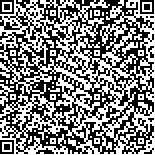| 摘要: |
| [摘要] 目的 探讨激素受体阳性/HER2阴性(HR+/HER2-)乳腺癌新辅助内分泌治疗的疗效。方法 回顾性分析2018年7月至2020年7月收治的40例接受新辅助内分泌治疗并行手术的HR+/HER2-乳腺癌患者的临床及病理相关资料,依据治疗方式分为观察组(新辅助内分泌治疗)和对照组(新辅助化疗)各20例。观察组接受来曲唑或他莫昔芬治疗,28 d为一周期,共治疗4~6个周期,无进展者持续服药至24周,限期行手术治疗;对照组采用表阿霉素+环磷酰胺序贯多西他赛化疗8周期后进行手术。比较两组临床疗效、Ki-67变化、血清糖类抗原153(CA153)变化、PEPI评分以及毒副反应。结果 两组客观缓解率差异无统计学意义(P>0.05)。观察组Ki-67明显下降率高于对照组,差异有统计学意义(P<0.05)。观察组治疗后血清CA153含量均较治疗前明显下降,差异有统计学意义(P<0.05)。观察组PEPI评分高风险率低于对照组,差异有统计学意义(P<0.05)。观察组毒副反应发生率低于对照组,差异有统计学意义(P<0.05)。结论 新辅助内分泌治疗与新辅助化疗对HR+/HER2-乳腺癌患者疗效相似,但安全性优于新辅助化疗。 |
| 关键词: 乳腺癌 新辅助内分泌治疗 新辅助化疗 疗效 |
| DOI:10.3969/j.issn.1674-3806.2021.07.14 |
| 分类号:R 737.9 |
| 基金项目: |
|
| Comparison of efficacy of neoadjuvant endocrine therapy versus neoadjuvant chemotherapy in hormone receptor positive/HER2-negative breast cancer |
|
ZHENG Tao, WANG Geng
|
|
Department of General Surgery, Taihe Hospital of Shiyan City, Hubei 442000, China
|
| Abstract: |
| [Abstract] Objective To investigate the efficacy of neoadjuvant endocrine therapy for hormone receptor positive/HER2-negative(HR+/HER2-) breast cancer. Methods The clinical and pathological related data of 40 patients with HR+/HER2- breast cancer who received neoadjuvant endocrine therapy and surgery from July 2018 to July 2020 were retrospectively analyzed. The patients were divided into the observation group(receiving neoadjuvant endocrine therapy) and the control group(receiving neoadjuvant chemotherapy) according to different treatment methods, with 20 cases in each group. The observation group was treated with letrozole or tamoxifen, 28 days as a cycle, for a total of 4-6 cycles, and the patients with no progress continued to take medicine until 24 weeks, and the patients were scheduled for surgery. The control group underwent surgery after 8 cycles of epirubicin+cyclophosphamide sequential docetaxel(EC-T) chemotherapy. The clinical efficacy, Ki-67 changes, serum carbohydrate antigen 153(CA153) changes, preoperative endocrine prognostic index(PEPI) score, and toxicity and side effects were compared between the two groups. Results The difference in objective remission rate was not significant between the two group(P>0.05). The decrease rate of Ki-67 in the observation group was significantly higher than that in the control group, and the difference was statistically significant(P<0.05). Compared with that before treatment, the serum CA153 content in the observation group decreased significantly after treatment, and the difference was statistically significant(P<0. 05). The rate of high risk of PEPI score in the observation group was significantly lower than that in the control group, and the difference was statistically significant(P<0.05). The rate of toxicity and side effects in the observation group was lower than that in the control group, and the difference was statistically significant(P<0.05). Conclusion Neoadjuvant endocrine therapy and neoadjuvant chemotherapy have similar efficacy in patients with HR+/HER2- breast cancer, but the safety of neoadjuvant endocrine therapy is better than that of neoadjuvant chemotherapy. |
| Key words: Breast cancer Neoadjuvant endocrine therapy Neoadjuvant chemotherapy Efficacy |

